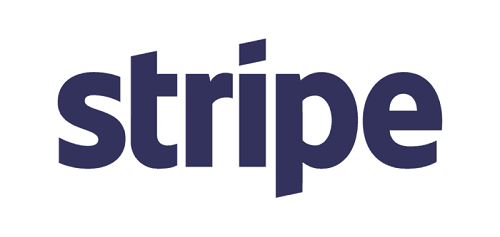Business.com aims to help business owners make informed decisions to support and grow their companies. We research and recommend products and services suitable for various business types, investing thousands of hours each year in this process.
As a business, we need to generate revenue to sustain our content. We have financial relationships with some companies we cover, earning commissions when readers purchase from our partners or share information about their needs. These relationships do not dictate our advice and recommendations. Our editorial team independently evaluates and recommends products and services based on their research and expertise. Learn more about our process and partners here.
Stripe vs. Square Credit Card Processing Comparison
Stripe and Square are excellent payment processing options for small businesses. Here's how they compare.


Table of Contents
Stripe and Square are among the best credit card processors that small businesses should consider. We’ve researched both services to help you compare them side by side and determine if one or the other would be the ideal payment processing solution for your company.

Editor’s note: Looking for the right credit card company for your business? Fill out the below questionnaire to have our vendor partners contact you about your needs.
Stripe vs. Square Highlights
Criteria | Stripe | Square |
|---|---|---|
Best for | E-commerce businesses and web developers | Brick-and-mortar and multichannel businesses |
Core pricing model | Standard and custom plans with no monthly fees | Free, Plus ($29 per month) and Premium (custom price) plans |
Security |
|
|
Software |
|
|
Hardware |
|
|
Integrations | Hundreds, including QuickBooks, Amazon Web Services and NetSuite | Hundreds, including QuickBooks, Wix and DoorDash |
Customer service |
|
|
Approval and setup |
|
|
Who is Stripe for?
Stripe is the ideal credit card processor for:
- E-commerce businesses with in-house web developers.
- Businesses that want high customization.
- Businesses requiring international payment capabilities.
- Companies with subscription services and marketplaces.
Check out our comprehensive Stripe review for a detailed look at Stripe’s features and processing options.
Who is Square for?
Square is a credit card processor best suited to:
- Brick-and-mortar stores.
- Multichannel businesses.
- Companies seeking an easy-to-use, all-in-one POS solution with integrated hardware and industry-specific software.
- Retail, restaurants and service-based businesses.
Read our in-depth review of Square to learn more about this vendor’s features and capabilities.
Stripe vs. Square Service Comparison
Plans and Pricing
Stripe
Stripe’s Standard plan is designed for smaller businesses — we love that it has no setup or monthly fees. There is also a customized plan option for merchants with unique business models and high payment volumes.
Standard plan features include the following:
- Embeddable checkout functionality
- Custom user interface (UI) toolkit
- Streamlined PCI compliance
- Invoice support
- Ability to process payments in more than 135 currencies and local payment methods
- Detailed real-time reporting
Stripe credit card processing costs are as follows:
Type of charge | Cost per transaction |
|---|---|
Online | Domestic cards: 2.9% plus 30 cents International cards: Add 1.5% Currency conversion: Add 2.5% |
In-person | Domestic cards: 2.7% plus 5 cents International cards: Add 1.5% Tap-to-pay functionality: Add 10 cents per authorization |
Manually entered cards | 3.4% plus 30 cents |
ACH payments | 0.8% with a $5 cap |
Digital wallet payments (Google Pay, Apple Pay, Click to Pay, WeChat Pay and Alipay) | 2.9% plus 30 cents |
Invoicing | 0.4% per paid invoice |
Buy Now, Pay Later services (Klarna, AfterPay and Affirm | Starting at 5.99% plus 30 cents |

Stripe’s custom UI building blocks help e-commerce merchants create secure payment forms. Source: Stripe
Square
Square offers several plans to accommodate businesses of varying sizes and needs. Its free plan, which is an excellent option for startups or companies with low sales volumes, impressed us.
Here’s an overview of Square’s plans:
Service plan | Monthly fee | Per-transaction rates | Features |
|---|---|---|---|
Free | $0 |
|
|
Plus | $29 |
|
|
Premium | Custom priced |
| Customized features |
Square allows you to accept all major credit cards, PayPal, mobile wallets like Apple Pay and Google Pay, and its proprietary digital wallet, Square Pay. It offers various add-on services to help you automate email marketing campaigns and run text message marketing campaigns.
Payment Processing
Stripe
Stripe stands out as a payment processor because of its:
- Online dominance: Built for e-commerce, extensive developer resources
- Wide payment acceptance: Cards, digital wallets (Apple Pay, Google Pay, WeChat Pay, Alipay), ACH, vouchers, PayPal, BNPL services, payment links, bank transfers
- Virtual terminal: Stripe terminal for keyed-in and in-person card or mobile payments
- Fast payouts: 2-day rolling basis (after initial seven to 10 days); option for weekly or monthly batches
- Chargeback advantage: $15 fee refunded if dispute is won
Square
We like Square for payment processing because of its:
- Omnichannel focus: Strong for both online and in-person sales; integrates with POS
- Diverse acceptance: All major credit cards, Apple Pay, Google Pay, Cash App, Samsung Pay, ACH for invoices
- Virtual terminal: Available for remote sales
- Speedy payouts: Funds in Square Checking, then transfer to bank within one day (or instantly for a fee)
- No chargeback fee: Square represents you in disputes without an upfront fee

Use your Square Checking account to pay bills, utilities and other expenses. Source: Square
Security
Stripe
Stripe includes several online payment security features in its Standard plan, such as:
- 3D Secure: This authentication method verifies a customer’s identity before processing an online purchase.
- Card account updater: This feature automatically updates expired or renewed card information for saved customers, reducing declined charges.
- Radar adaptive acceptance: Stripe’s machine learning (ML) algorithms enhance authorization rates in real time, increasing sales by minimizing declined transactions.
- Advanced options:
- Verify the authenticity of government-issued identification by matching photos ($1.50 per verification)
- Validate customer-provided data (such as name, date of birth and Social Security number) against government and third-party databases

Stripe’s online identity verification technology can help prevent payment fraud. Source: Stripe
Square
Square’s notable security features include:
- PCI compliance: Square is PCI-compliant, encrypting customer payment information end-to-end. This ensures that none of your customers’ private information is stored on your servers or devices.
- Fraud prevention: Square’s card readers are EMV-compliant, which means they accept chips. This can help reduce fraud incidents. Square also uses ML models to identify suspicious transactions.
Software
Stripe
- Highly customizable: Tailor the platform with APIs, UI toolkits (Elements) and custom payment forms
- E-commerce and subscription focus: Embeddable checkout, invoicing, recurring payments and real-time reporting
- Integrations: Hundreds of integrations, including QuickBooks, AWS and NetSuite
- Mobile app: Monitor transactions, refund purchases, and view sales and customer data — but no transaction processing
Square
- All-in-one ecosystem: Multichannel sales oversight; handles various transaction types
- Industry-specific POS software: For retail, restaurants and appointment-based businesses
- CRM functionality: Link purchases to customer profiles and inventory
- Website integration: Easy no-code setup via Square Checkout; developer tools available
- Mobile app: Process transactions on the go
Hardware
Stripe
- Card readers: Stripe offers users three card readers: the Stripe Reader S700 for $349, the Stripe Reader M2 for $59 and the BBPOS WisePOS E for $249.
- Other devices: Accessories are also available, including protective covers, docks and mounts.
Square
- Square Reader for Magstripe: Easily plugs into Android and iOS devices, but only accepts swipe credit and debit cards, not chip or near-field communication (NFC) cards. First Square Reader for Magstripe is free.
- Square Reader for Contactless & Chip: Connects to your mobile phone or tablet via Bluetooth. It can accept NFC mobile payments like Apple Pay and Google Pay, as well as credit and debit cards. It costs $49.
- Square Terminal: Connects to Square’s software via Bluetooth and can accept payments by swiping, tapping or inserting cards. It can also print receipts. Cost is $299.
- POS Register: The POS Register ($799) is for permanent locations. It has a cashier-facing screen and a customer-facing payment interface that can accept credit and debit cards. Use it as a standalone device or combine it with accessories like a receipt printer ($299), handheld scanner ($119) and cash drawer ($249).

Square’s POS register has an employee-facing screen and a customer-facing touchscreen and is preloaded with POS software. Source: Square
Integrations
Stripe
- Software integrations: Stripe integrates with hundreds of software applications, including QuickBooks, NetSuite and other major business platforms.
- Developer tools: Access comprehensive testing tools, a developer dashboard and hundreds of prebuilt platforms and extensions. Requires technical expertise for full customization.
Square
Square offers hundreds of integrations to enhance the service’s functionality, such as GoDaddy, Mailchimp and Instagram. You’ll also find industry-specific integrations like the following:
- Retail: Shopventory, WooCommerce, BigCommerce, Wix and Shippo
- Beauty and personal care: Square Appointments, Jotform, Cognito Forms and IntakeQ
- Restaurants: Square KDS, Postmates, Kyoo, Homebase and QuickBooks Time

Customer Service
Stripe
- 24/7 support: Phone, live chat and email
- Extensive online resources: Searchable documentation, guides, Discord tech support
Square
- Standard phone/chat hours: Monday to Friday, 6 a.m. to 6 p.m. PT
- 24/7 phone support: Available for Premium subscribers
- Additional resources: Online support center, in-app support, seller community
Approval and Setup
Stripe
- Approval process: Easy to apply for and setup is straightforward for those with web developer skills. Stripe doesn’t accept merchants in high-risk industries, such as financial institutions, online gambling platforms and cannabis dispensaries.
- No-code options: With payment links, customers are taken to a custom checkout page hosted by Stripe. Setting up invoicing as a payment method is simple for tech novices.
- Custom integration options: For an additional fee, Stripe offers custom integrations for merchants without access to developers. Stripe can also match you with a verified third-party provider offering prebuilt solutions, making it easier if you lack coding knowledge.

Stripe enables merchants to generate payment links to share with customers. Source: Stripe
Square
- Approval process: The straightforward online application process can be completed quickly. However, like Stripe, Square is not an option for merchants in high-risk industries or businesses like membership clubs and direct marketing firms.
- Setup: Once approved, setting up Square is relatively easy. The implementation time will depend on the functionality you require.
- Easy integration options: Services like Square Checkout don’t require coding and are quick and seamless to set up. Prebuilt third-party solutions are also easy to set up. However, if your main revenue stream is online sales, you will likely need a web developer to get everything running smoothly.
Stripe vs. Square Summary
Stripe is best for:
- E-commerce and online-first businesses: Its deep developer tools, customizable checkout and robust APIs are perfect for tailored online experiences.
- Businesses with developer resources: In-house developers can fully leverage Stripe’s power for complex integrations and unique payment flows.
- Subscription and platform businesses: Stripe Billing and Connect are designed for recurring payments and marketplace solutions.
- International businesses: Stripe supports 135+ currencies and diverse global payment methods.
- Companies that value transparency and customization: Users who appreciate pay-as-you-go pricing without monthly fees and the ability to finely tune their payment system will be more satisfied with Stripe.
Square is best for:
- Brick-and-mortar and multichannel businesses: Its integrated POS system, hardware and industry-specific software are ideal for physical locations.
- Non-technical business owners: Easy setup, an intuitive interface and no-code options make Square accessible without developer expertise.
- Startups and low-volume businesses: The free plan and affordable hardware are attractive entry points.
- Retail, restaurant and service businesses: Dedicated software features simplify operations for companies in these sectors.
- Companies prioritizing simplicity and all-in-one solutions: Users who prefer a unified system for payments, inventory, staff and customer management will find Square extremely valuable.
FAQs










